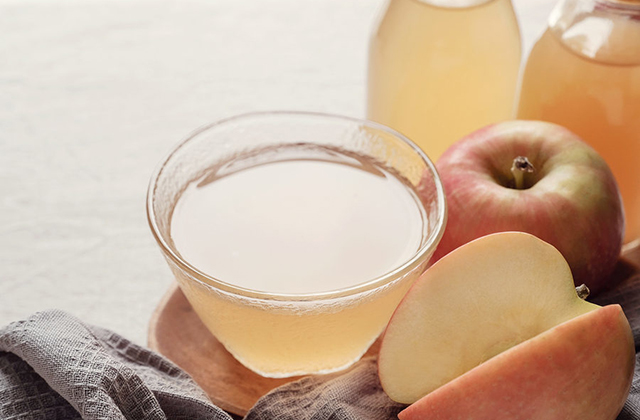Probiotics: 80% Of Your Immune System Lives In Your Gut
Why do so many cesarean-section infants have less than optimal health after birth? It’s because there is a close link between the health of our gut bacteria and our well-being. During a normal delivery, a new-born becomes exposed with bacteria from the mother’s womb and birth canal. This event starts colonization in the infant’s gastrointestinal (GI) tract of “good” bacteria. Recent studies have shown that many cesarean-section infants have less than optimal health after birth. This was because they were not exposed to the “good” bacteria in the birth canal of their mothers and they became “bacteria-deficient”.
We don’t have a choice when it comes to how we are born, but we do have a choice as to how we live our lives and what we decide to put inside our bodies. Today we are exposed to an array of toxins and antibacterial agents that disrupt the health of our gut bacteria without even knowing it. The chlorinated water, overly processed foods, smoking and pollution. All of these (and more) pose threat to the beneficial bacteria in our gut. As a whole, we are now less exposed to bacteria than in the past. The use of antibacterial products (antibiotics, antibacterial handwashes, etc) have a made for a world that is much cleaner, but not necessarily that much healthier.
In fact, a journal article from the Canadian Medical Association (2013) have linked the disruption of our normal gut flora (the good bacteria in our gut) with many inflammatory and immune-related diseases such as allergy, asthma and even cancer. The statistics are jaw-dropping:
- A five-fold increased risk of allergies
- Triple the risk of ADHD
- Twice the risk of autism
- An 80 percent increased risk of celiac diseases
- A 50 percent increased risk of becoming obese (also linked with dementia)
- A 70 percent increased risk of type-1 diabetes
The link between the integrity of your gut bacteria and your overall health is indisputable. These findings resulted in a movement in the field of medicine and how doctors treat certain immune-related conditions. For example, the book ‘The Brain Maker’ (by Dr. David Perlmutter) cites numerous cases in which many conditions were successfully treated through fecal microbata transplant (FMT). FMT is also known as stool transplant. Yes, it sounds crazy and many people become mentally resistant when they hear the name. But it works. Then what can we do to promote healthy gut bacteria?
What Can I Do?
Deciding to maintain a healthy balance of good bacteria in your gut will be one of the most important lifestyle choice you make. The benefits are unbelievable and it’s going to be life changing. The first two options below are foods that you can make at home. They take time and effort but the benefits you reap makes it all worthwhile. The third option is taking probiotic supplements, it is the easiest option but it can be difficult to find the right product in the market. The market is flooded with probiotic supplements and many people waste a lot of money in purchasing all the wrong products. But don’t worry, I’ve done the research for you.
1. Kimchi
As a Korean I’ve been culturally brought up in a setting where most meals were accompanied by Kimchi. Kimchi is a traditional fermented Korean side dish made of vegetables with a variety of seasoning. Kimchi is rich in Vitamin A, thiamine (B1), riboflavin (B2), calcium, iron and lactic acid bacteria. Although there is no solid proof, it is said that during the 2003 SARS outbreak in Asia, Korean people were protected against the infection because of Kimchi. Kimchi is delicious but may not be the best option as it is difficult to make. But if you are adventurous and want to spice up your meals, it is definitely worth a shot.
2. Kefir
There are two main types of Kefir – water and milk based. Kefir has high content in nutrients and probiotics and is known to be incredibly beneficial for digestion and gut health. Many believe that they are much more healthier and potent than yogurt. Kefir contains calcium (milk kefir), Vitamin B12, B2, magnesium and of course, healthy bacteria that promotes gut health.
3. Probiotic Supplements
This is the easiest way to promote good gut health, it doesn’t require any form of preparation or cooking, but you do need to take the right products. The key requirements of a probiotic supplement that would label them as high-quality are as follows:
- Contain effective bacterial strains
- Is viable with high bioavailability
- Remains stable throughout its shelf life
- Have the ability to survive the stomach acid
- And be able to thrive in the intestine
The market of probiotic supplements is flooded with products and it’s easy to be fooled into purchasing products that have no value at all. But I personally review and hand pick products that are proven to work.
How Does Probiotics Help?
Probiotics work by promoting the natural digestion of food and restoring the health of gut flora. Probiotics are even used to remedy certain diseases. Some of the common conditions they treat are:
- Irritable bowel syndrome
- Inflammatory bowel disease (IBD)
- Infectious diarrhea (caused by viruses, bacteria, or parasites)
- Antibiotic-related diarrhea
There is also some research to show they help with problems in other parts of your body. For example, some people say they have helped with:
- Skin conditions, like eczema
- Urinary and vaginal health
- Preventing allergies and colds
- Oral health
There are more benefits in taking probiotics. Having a healthy gut flora is the beginning to living a truly healthy life with lowered risks of debilitating diseases such as cancer, diabetes and obesity. This is a fantastic way to super charge your health in 2016. Start looking after your bacteria and your bacteria will take care of you.
Article Source: https://EzineArticles.com/expert/Tae_Young_Kim/2232930
Article Source: http://EzineArticles.com/9301395
